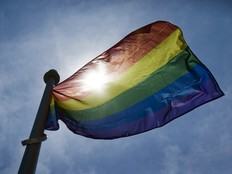White Fragility author accused of plagiarizing Asian-American scholars

Article content
Reviews and recommendations are unbiased and products are independently selected. Postmedia may earn an affiliate commission from purchases made through links on this page.
Robin DiAngelo, an author who became famous for declaring that white people in the U.S. should look inward and confront their racist biases, has been accused of copying the work of two Asian-American scholars in her 2004 doctoral thesis.
There were 20 examples of alleged plagiarism in the White Fragility author’s dissertation, Whiteness in Racial Dialogue: A Discourse Analysis, according to a complaint filed with the University of Washington, obtained by the Washington Free Beacon.
Two paragraphs that appear to be reproduced almost entirely came from Thomas Nakayama of Northeastern University, who is Asian-American, and co-author Robert Krizek and were cited as examples.
Another instance shows DiAngelo using a paragraph written by University of Wisconsin-Madison professor Stacey Lee, in which the anti-racism workshop facilitator presents the Asian-American woman’s details in a way that appears as though she was providing the summary herself.
“It is never appropriate to use the secondary source without acknowledging it and even worse to present it as one’s own words,” former National Association of Scholars president Peter Wood told the Beacon.
“That’s plagiarism.”
The “accountability” section on DiAngelo’s website, which is essentially an overview of her “personal accountability actions,” includes her personal and professional dealings with people of colour.
“Always cite and give credit to the work of BIPOC (Black, Indigenous and people of colour) people who have informed your thinking,” she says of providing proper attribution.
“When you use a phrase or idea you got from a BIPOC person, credit them.”
RECOMMENDED VIDEO
The doctorate has become key in DiAngelo’s marketing materials, the Beacon noted, as she is often referred to as either “Dr. Robin DiAngelo” or “Robin DiAngelo, PhD,” including in the header of her website.
White Fragility was published in 2018, but the controversial book jumped to the top of the New York Times bestseller list in the wake of George Floyd’s murder in 2020.
During that time, DiAngelo made regular TV appearances and was a keynote speaker at events, telling white Americans they must deal with their inherent bigotry for progress in racism to happen.
A University of Washington spokesperson told the New York Post about the accusations against DiAngelo.
“We are committed to the integrity of research conducted at the University of Washington,” the spokesperson said. “All complaints are carefully reviewed.”














Postmedia is committed to maintaining a lively but civil forum for discussion. Please keep comments relevant and respectful. Comments may take up to an hour to appear on the site. You will receive an email if there is a reply to your comment, an update to a thread you follow or if a user you follow comments. Visit our Community Guidelines for more information.